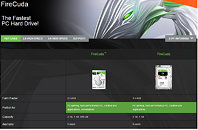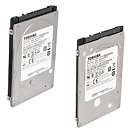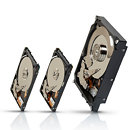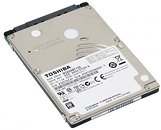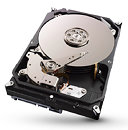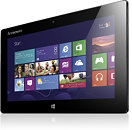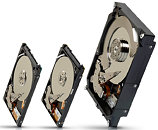Apr 10th, 2025 04:51 EDT
change timezone
Latest GPU Drivers
New Forum Posts
- random system shutdown with fans running at full speed (16)
- RX 9000 series GPU Owners Club (275)
- Shadow of the Tomb Raider benchmark (555)
- Do you use Linux? (573)
- [Update] FanControl (and other different monitoring software) blocked by Defender due to Winring0 vulnerability (2)
- Help with updating firmware on a AOC Agon Pro OLED monitor, says I need Install Tool (3)
- HP EliteDesk 800 G2 SFF CPU support (2)
- Anyone know where to get driver updates / backdates for TUF A15? (4)
- EK Quantum Velocity intel to amd conversion (13)
- How is the Gainward Phoenix Model in terms of quality? (0)
Popular Reviews
- The Last Of Us Part 2 Performance Benchmark Review - 30 GPUs Compared
- ASRock Z890 Taichi OCF Review
- MCHOSE L7 Pro Review
- Sapphire Radeon RX 9070 XT Pulse Review
- PowerColor Radeon RX 9070 Hellhound Review
- Upcoming Hardware Launches 2025 (Updated Apr 2025)
- Sapphire Radeon RX 9070 XT Nitro+ Review - Beating NVIDIA
- Acer Predator GM9000 2 TB Review
- ASUS GeForce RTX 5080 Astral OC Review
- UPERFECT UStation Delta Max Review - Two Screens In One
Controversial News Posts
- NVIDIA GeForce RTX 5060 Ti 16 GB SKU Likely Launching at $499, According to Supply Chain Leak (174)
- MSI Doesn't Plan Radeon RX 9000 Series GPUs, Skips AMD RDNA 4 Generation Entirely (146)
- Microsoft Introduces Copilot for Gaming (124)
- AMD Radeon RX 9070 XT Reportedly Outperforms RTX 5080 Through Undervolting (119)
- NVIDIA Reportedly Prepares GeForce RTX 5060 and RTX 5060 Ti Unveil Tomorrow (115)
- Over 200,000 Sold Radeon RX 9070 and RX 9070 XT GPUs? AMD Says No Number was Given (100)
- Nintendo Switch 2 Launches June 5 at $449.99 with New Hardware and Games (99)
- Nintendo Confirms That Switch 2 Joy-Cons Will Not Utilize Hall Effect Stick Technology (99)
News Posts matching #SSHD
Return to Keyword Browsing
OEMs Under Pressure from Microsoft to Stop Use of HDDs as Boot Drives from 2023
PC OEMs have revealed to market intelligence firm Trendfocus that Microsoft wants them to stop the use of hard-disk drives (HDDs, or mechanical hard-drives) as the main boot device in products powered by Windows 11, from 2023. It's not known how the company will go about enforcing this. One theory holds that it may amend the Minimum System Requirements for the operating system to specify a flash-based storage device, such as an SSD. If push comes to shove, the OS could even refuse to deploy on a machine with an HDD as the boot device.
What's also not known is how this affects SSHDs (hard drives with tiny flash-based storage media and an access-based data-juggling mechanism). Microsoft's decision should come as a boon for entry-level notebook and desktop buyers; as this segment sees OEMs use HDDs as the boot device, the most. There could be a push toward at least DRAMless QLC SSDs, or even single-chip SSDs. Regardless, it's clear that 2.5-inch HDDs are on their way out of the industry. HDD as a technology may still exist in the 3.5-inch form-factor, as they are in high demand from the data-center and surveillance markets as cold storage devices.
What's also not known is how this affects SSHDs (hard drives with tiny flash-based storage media and an access-based data-juggling mechanism). Microsoft's decision should come as a boon for entry-level notebook and desktop buyers; as this segment sees OEMs use HDDs as the boot device, the most. There could be a push toward at least DRAMless QLC SSDs, or even single-chip SSDs. Regardless, it's clear that 2.5-inch HDDs are on their way out of the industry. HDD as a technology may still exist in the 3.5-inch form-factor, as they are in high demand from the data-center and surveillance markets as cold storage devices.

Seagate Introduces the 5th Gen FireCuda SSHDs - Up to 2 TB, 8Gb NAND
Seagate has officially updated their FireCuda line, the solid-state supported, high-capacity hybrid drives. The new, 5th Gen models sport a thinner form-factor (2.5"), rocking the company's multi-tier cache technology as well as 1 TB SMR (Shingled Magnetic Recording) plates. The SMR plate's difference compared to conventional, perpendicular recording HDD technology allows these hybrid drives to increase storage density by up to 25%, by allowing newly-written magnetic tracks to partly overlap previously-written ones, reducing the amount of platter real-estate occupied.
The caveat with this technology is that the overlapping-tracks architecture may slow down the writing process, since writing to one track overwrites adjacent tracks, and requires them to be rewritten as well. However, according to Seagate, the large, multi-tier cache technology and large NAND caches are enough to offset any performance loss incurred by the SMR technology employed on these drives, and then some.
The caveat with this technology is that the overlapping-tracks architecture may slow down the writing process, since writing to one track overwrites adjacent tracks, and requires them to be rewritten as well. However, according to Seagate, the large, multi-tier cache technology and large NAND caches are enough to offset any performance loss incurred by the SMR technology employed on these drives, and then some.

Toshiba Launches New Generation Solid State Hybrid Drives
Toshiba Corporation's Semiconductor & Storage Products Company announced the launch of its new solid state hybrid drive (SSHD) series, which is equipped with Toshiba's 19nm second-generation NAND flash memory. The new "MQ02ABD100H" SSHD offers 1TB capacity in a drive 9.5mm high, while the "MQ02ABF050H" offers a capacity of 500GB in a 7 mm high form factor. Sample shipments will begin from February.
SSHDs deliver better performance compared to traditional hard disk drives (HDD), because the drives feature NAND that is used as the secondary cache during operation. This means users see improvement to the drive's performance compared to traditional HDDs, while still maintaining the equivalent capacities of traditional HDDs. The "MQ02ABD100H" and "MQ02ABF050H" are suitable for high-performance PCs like mainstream and gaming PCs, while the "MQ02ABF050H"'s height of 7mm makes it suitable for ultra-thin and ultra-portable computing devices.
SSHDs deliver better performance compared to traditional hard disk drives (HDD), because the drives feature NAND that is used as the secondary cache during operation. This means users see improvement to the drive's performance compared to traditional HDDs, while still maintaining the equivalent capacities of traditional HDDs. The "MQ02ABD100H" and "MQ02ABF050H" are suitable for high-performance PCs like mainstream and gaming PCs, while the "MQ02ABF050H"'s height of 7mm makes it suitable for ultra-thin and ultra-portable computing devices.

Seagate Ships 10 Millionth Solid-State Hybrid Drive
Seagate Technology plc, a worldwide leader in storage solutions, today announced that it has shipped its 10 millionth solid-state hybrid hard drive (SSHD). Seagate pioneered the world's first SSHD and has experienced rising demand over the last two years for these solutions that offer the speed of SSDs combined with the industry's highest storage capacities.
SSHDs typically deliver three to four times the performance of traditional hard drives in typical PC workloads, which has been a key factor driving adoption with the leading PC vendors, worldwide. Combining its expertise in both flash and hard disk drive technologies, Seagate's SSHDs deliver a powerful mix of performance and capacity that is optimized to handle the most demanding requirements of both today's IT organizations and consumers alike. Today, the demand for systems integrating SSHDs is being fuelled by the explosive data growth from mobile applications, cloud infrastructures, social media, business applications and a wide variety of consumer markets.
SSHDs typically deliver three to four times the performance of traditional hard drives in typical PC workloads, which has been a key factor driving adoption with the leading PC vendors, worldwide. Combining its expertise in both flash and hard disk drive technologies, Seagate's SSHDs deliver a powerful mix of performance and capacity that is optimized to handle the most demanding requirements of both today's IT organizations and consumers alike. Today, the demand for systems integrating SSHDs is being fuelled by the explosive data growth from mobile applications, cloud infrastructures, social media, business applications and a wide variety of consumer markets.

Toshiba Announces 5TB Surveillance Hard Disk Drive
The Storage Products Business Unit of Toshiba America Electronic Components, Inc., a committed technology leader, announces the MD04ABA-V Series, delivering the company's first 5TB1 3.5-inch, low RPM hard disk drive (HDD) specifically for surveillance applications. The MD04ABA-V series is designed for use in surveillance digital video recorders (SDVR), surveillance network video recorders (SNVR) and hybrid SDVR.
The MD04ABA-V Series is designed for surveillance applications with support for up to 32 high definition cameras2. The Series supports 24/7 operation, and also incorporates rotational vibration (RV) sensors, making it suitable for use in RAID/multi-HDD based surveillance platforms. With the massive 5TB capacity point, customers now have the flexibility to retain higher resolution surveillance video data for longer periods using fewer HDDs, helping to maintain a smaller storage footprint and lower energy costs.
The MD04ABA-V Series is designed for surveillance applications with support for up to 32 high definition cameras2. The Series supports 24/7 operation, and also incorporates rotational vibration (RV) sensors, making it suitable for use in RAID/multi-HDD based surveillance platforms. With the massive 5TB capacity point, customers now have the flexibility to retain higher resolution surveillance video data for longer periods using fewer HDDs, helping to maintain a smaller storage footprint and lower energy costs.

WD to Demonstrate First PCI Express Hard Drives at Computex 2014
WD, a Western Digital (NASDAQ: WDC) company, and world leader in storage solutions, will be demonstrating the first PCI Express hard drives at Computex Taipei, June 3-4, 2014. Enabled with key technology partners, WD's prototype introduces the new SATA Express interface, a form of PCI Express technology, which is offered on recently launched Intel series-9 chipset motherboard platforms. The SATA Express interface provides a roadmap for faster speeds, lower power consumption and increased flexibility for future OEM designs.
The road to the world's first demonstration of SATA Express has been in development for almost 3 years. In 2011, SATA-IO, the group responsible for charting the future of SATA, announced that it was developing a new specification that would fundamentally change the core technology behind SATA by melding it with the more advanced PCI Express computer interface. In 2013, the SATA Express specification was announced; and just one year later, WD and selected partners have realized a prototype of what is expected to be the next generation of storage technology.
The road to the world's first demonstration of SATA Express has been in development for almost 3 years. In 2011, SATA-IO, the group responsible for charting the future of SATA, announced that it was developing a new specification that would fundamentally change the core technology behind SATA by melding it with the more advanced PCI Express computer interface. In 2013, the SATA Express specification was announced; and just one year later, WD and selected partners have realized a prototype of what is expected to be the next generation of storage technology.

Toshiba Introduces the New Satellite S Series Laptops
Toshiba UK today announces its latest S Series laptops - the ultra-slim and stylish 39.6 cm (15.6") Satellite S50 and the 43.9 cm (17.3") Satellite S70. Through a range of ergonomic features, coupled with full performance and touchscreen options, these models deliver outstanding usability - all in a premium design that was made to increase productivity and provide an excellent entertainment experience.
Distinctively Toshiba
At 19.9 mm thin, the S50 has a full brushed metal finish, and single-piece top case that's chic, ultra-mobile, and distinctively Toshiba packed with power and performance. Thin and light for comfortable use anywhere, the S50 is always ready to travel without compromising on features.
Distinctively Toshiba
At 19.9 mm thin, the S50 has a full brushed metal finish, and single-piece top case that's chic, ultra-mobile, and distinctively Toshiba packed with power and performance. Thin and light for comfortable use anywhere, the S50 is always ready to travel without compromising on features.

Toshiba Announces Slimmer 7 mm SSHD
Toshiba, a committed technology leader, announces the slim, 7mm MQ01ABF solid state hybrid drive (SSHD) series. Equipped with Toshiba's NAND flash and available in 500GB1 and 320GB capacities, the MQ01ABFH series is the first Toshiba SSHD drive family in 7 mm. The series continues Toshiba's legacy of providing world-class storage products, and offers customers a complete lineup of 2.5-inch solid state hybrid drives with the previously announced 1TB2 and 750GB MQ01ABDH series 9.5mm SSHDs for ultrathin and thin and light notebook PCs, multimedia and gaming applications, and traditional laptop PCs.
Drawing upon its knowledge and experience in NAND flash, Toshiba optimized the NAND flash performance into a tiered-storage approach that uses the speed of the DRAM and NAND components with the high-capacity of rotating media. The SSHD delivers SSD-like performance without dependence on external drivers or assistance from the host system. The PC Mark Vantage Score, the established industry method for measuring SSHD read/write performance and responsiveness, for the MQ01ABFH series is approximately 20,000, surpassing the 16,000 industry standard result.
Drawing upon its knowledge and experience in NAND flash, Toshiba optimized the NAND flash performance into a tiered-storage approach that uses the speed of the DRAM and NAND components with the high-capacity of rotating media. The SSHD delivers SSD-like performance without dependence on external drivers or assistance from the host system. The PC Mark Vantage Score, the established industry method for measuring SSHD read/write performance and responsiveness, for the MQ01ABFH series is approximately 20,000, surpassing the 16,000 industry standard result.
I-O Data to Release a 1 TB 2.5-inch SSHD
Next month I-O Data is set to introduce its very own SSHD (solid state hybrid drive), a 2.5-inch storage solution that features 1 TB worth of platter storage and 8 GB of NAND Flash memory that can store frequently-used files for much quicker access.
Named HDN-H1.0, the upcoming drive has a SATA 6.0 Gbps interface, it spins at 5,400 RPM, and is bundled with a SATA to USB 3.0 cable that allows for easier data migration. I-O Data's 1 TB SSHD will be released around mid-December and will cost 21,000 yen (~ 207 USD).
Named HDN-H1.0, the upcoming drive has a SATA 6.0 Gbps interface, it spins at 5,400 RPM, and is bundled with a SATA to USB 3.0 cable that allows for easier data migration. I-O Data's 1 TB SSHD will be released around mid-December and will cost 21,000 yen (~ 207 USD).

Toshiba Announces Slim HDD for Thin Laptops
The Storage Products Business Unit of Toshiba America Electronic Components, Inc., a committed technology leader, announces the slim, 7mmH two platter MQ02ABF series 2.5-inch 5,400 RPM SATA hard drive disk (HDD). The MQ02ABF series is Toshiba's first two platter 7mm HDD model, delivering up to 1TB1 of storage capacity with both the performance and power efficiency required for thin mobile computing applications. Available in 750GB1 and 1TB, the MQ02ABF HDD series features a rigid chassis design and dual stage head positioning technology.
"The MQ02ABF series fulfills our customers' desire for a high capacity 7mm form factor HDD required for today's thin and light laptops," said Don Jeanette, senior director of product marketing at Toshiba's Storage Products Business Unit. "We continue to focus on delivering a wide range of storage devices that enhance the computing experience, and we believe this newest addition to Toshiba's HDD product line will deliver the features our customers need."
"The MQ02ABF series fulfills our customers' desire for a high capacity 7mm form factor HDD required for today's thin and light laptops," said Don Jeanette, senior director of product marketing at Toshiba's Storage Products Business Unit. "We continue to focus on delivering a wide range of storage devices that enhance the computing experience, and we believe this newest addition to Toshiba's HDD product line will deliver the features our customers need."

WD Founds New Storage Association to Promote Magnetic Storage Technologies
WD, a Western Digital company, announced that it has founded the Storage Products Association (SPA) with other hard drive companies to promote the merits and value of rotating magnetic storage technologies, as well as to make consumers and professionals aware of how critical hard disk drives (HDDs) and solid-state hybrid drives (SSHDs) are to their digital lives.
SPA members include HGST, Seagate, Toshiba and WD. The organization helps storage manufacturers and users understand and support current and future storage needs, including the key role of hard disk drives (HDDs) and solid state hybrid drives, in an effective storage mix for all consumer and business environments. SPA will provide education to its customers, partners, members and users of HDDs and SSHDs. SPA will also participate in industry and user events, and will publish materials about end users' storage needs and effective usage of a mix of storage technologies.
SPA members include HGST, Seagate, Toshiba and WD. The organization helps storage manufacturers and users understand and support current and future storage needs, including the key role of hard disk drives (HDDs) and solid state hybrid drives, in an effective storage mix for all consumer and business environments. SPA will provide education to its customers, partners, members and users of HDDs and SSHDs. SPA will also participate in industry and user events, and will publish materials about end users' storage needs and effective usage of a mix of storage technologies.
SATA-IO Announces SATA Revision 3.2 Specification
Serial ATA International Organization (SATA-IO), the industry consortium dedicated to sustaining the quality, integrity and dissemination of Serial ATA (SATA) technology, today announced the ratification of its revision 3.2 specification. The latest specification includes SATA Express, a new specification that enables the coexistence of SATA and PCIe storage devices, as well as enhancements in power management, new SATA form-factors, and optimizations for solid state hybrid drives (SSHDs).
"SATA technology continues to evolve to accommodate ever-changing storage industry requirements," said Mladen Luksic, SATA-IO President. "The updates featured in the revision 3.2 specification, such as SATA Express and enhancements for emerging solid state hybrid drives, are driven by current market trends. These new features demonstrate SATA-IO's ongoing commitment to providing low-cost, high-performance storage solutions."
"SATA technology continues to evolve to accommodate ever-changing storage industry requirements," said Mladen Luksic, SATA-IO President. "The updates featured in the revision 3.2 specification, such as SATA Express and enhancements for emerging solid state hybrid drives, are driven by current market trends. These new features demonstrate SATA-IO's ongoing commitment to providing low-cost, high-performance storage solutions."

eASIC Announces Strategic Investment by Seagate
eASIC Corporation, a provider of NEW ASIC devices today announced a strategic investment by Seagate Technology. In addition to the equity investment, eASIC and Seagate also are exploring opportunities to jointly develop custom silicon solutions for Seagate's portfolio of Solid State Drives (SSD) that would combine Seagate's expertise in SSD with eASIC's expertise in fast time-to-market, low-cost and low-power custom silicon solutions.
As FLASH memory continues to evolve at a rapid pace from 2 bits per cell, 1xnm (MLC) to 3 bits per cell 1xnm (TLC) and the industry continues to adopt a wide variety of host interfaces such as PCI Express, NVMe and SoP (SCSI over PCI Express), Seagate and eASIC seek to deliver high-performance, low-cost and low-power SSD solutions for the consumer, enterprise and cloud computing.
As FLASH memory continues to evolve at a rapid pace from 2 bits per cell, 1xnm (MLC) to 3 bits per cell 1xnm (TLC) and the industry continues to adopt a wide variety of host interfaces such as PCI Express, NVMe and SoP (SCSI over PCI Express), Seagate and eASIC seek to deliver high-performance, low-cost and low-power SSD solutions for the consumer, enterprise and cloud computing.

Seagate Introduces World's Fastest Enterprise Hard Drive
Seagate Technology plc, a world leader in storage solutions, today announced it is shipping the world's fastest hard drive - the Seagate Enterprise Turbo SSHD. The industry's first enterprise solid state hybrid drive (SSHD), the Enterprise Turbo SSHD combines the capacity of a hard drive with solid-state flash enabling high-speed performance for mission critical data.
Setting a new standard in mission critical performance, the Enterprise Turbo SSHD provides up to a 3X increase in random performance over existing 15K-RPM drives and is available with up to 600 GB of capacity. By unifying the best of solid-state and magnetic technologies, Turbo improves tiered storage performance combining accelerated speed with hard disk drive (HDD) high-capacity.
Setting a new standard in mission critical performance, the Enterprise Turbo SSHD provides up to a 3X increase in random performance over existing 15K-RPM drives and is available with up to 600 GB of capacity. By unifying the best of solid-state and magnetic technologies, Turbo improves tiered storage performance combining accelerated speed with hard disk drive (HDD) high-capacity.

Lenovo Announces Trio of ThinkCentre Desktops
Lenovo today announced the latest generation of its "Tiny" ThinkCentre desktop PC - the ThinkCentre M93p, which packs powerful performance into an impressively small form factor measuring just the width of a golf ball (34.5 mm). Lenovo also introduced the latest generation all-in-one (AIO), the ThinkCentre M93z AIO and the ThinkCentre M83 desktop. Designed with businesses in mind, all of the new ThinkCentre desktops optimize productivity and reduce costs with 4th generation Intel Core processors and top-notch energy efficiency.
"While the world believed that desktop PCs would become extinct, Lenovo believed in the desktop's evolution. This is how the original Tiny came into being," said Victor Rios, vice president and general manager of Think desktop, workstation, visuals. "The new Tiny takes this evolution to the next level. We are leading the industry trend of desktop miniaturization, offering new and innovative form factors, like Tiny and the new M93z all-in-one, that are still among the most powerful and energy efficient in the commercial space."
"While the world believed that desktop PCs would become extinct, Lenovo believed in the desktop's evolution. This is how the original Tiny came into being," said Victor Rios, vice president and general manager of Think desktop, workstation, visuals. "The new Tiny takes this evolution to the next level. We are leading the industry trend of desktop miniaturization, offering new and innovative form factors, like Tiny and the new M93z all-in-one, that are still among the most powerful and energy efficient in the commercial space."

Lenovo Gets in the 'Miix' with New Range of Touch-Enabled Windows Device
Lenovo today announced several new touch-enabled Windows laptops, along with Lenovo Miix, a platform-bending multi-mode device that adapts to a user's every need. As a 10.1-inch tablet that converts instantly into a fully-functioning, Windows 8 laptop, the Lenovo Miix combines versatility and power in one touch-enabled device. The IdeaPad S400 Touch, S500 Touch, S210 Touch, U330 Touch and U430 Touch all hail from the company's S Series and U Series, which are notable for their thin and lightweight designs.
The new Lenovo Miix, S Series and U Series devices demonstrate Lenovo's commitment to "touch" as a defining trend in consumer computing. Research analyst firm IDC expects the penetration rate of touch laptops, which now sits at close to 15 percent, to double next year. Leading that trend, Lenovo is innovating across traditional technology segments - such as desktop and laptop PCs - with its new multi-mode, touch-enabled devices.
The new Lenovo Miix, S Series and U Series devices demonstrate Lenovo's commitment to "touch" as a defining trend in consumer computing. Research analyst firm IDC expects the penetration rate of touch laptops, which now sits at close to 15 percent, to double next year. Leading that trend, Lenovo is innovating across traditional technology segments - such as desktop and laptop PCs - with its new multi-mode, touch-enabled devices.

Toshiba Announces Slimmer 7mm Solid State Hybrid Drive
Toshiba's Storage Products Business Unit of Toshiba America Electronic Components, Inc., a committed technology leader, announces the slim, 7 mm MQ01ABFH solid state hybrid drive (SSHD) series. Equipped with Toshiba's NAND flash and available in 500GB1 and 320GB capacities, the MQ01ABFH series is the first Toshiba SSHD drive family in 7 mm. The series continues Toshiba's legacy of providing world-class storage products, and offers customers a complete lineup of 2.5-inch solid state hybrid drives with the previously announced 1 TB and 750 GB MQ01ABDH series 9.5 mm SSHDs for ultrathin and thin and light notebook PCs, multimedia and gaming applications, and traditional laptop PCs.
Drawing upon its knowledge and experience in NAND flash, Toshiba optimized the NAND flash performance into a tiered-storage approach that uses the speed of the DRAM and NAND components with the high-capacity of rotating media. The SSHD delivers SSD-like performance without dependence on external drivers or assistance from the host system. The PCMark Vantage Average HDD Score, the established industry method for measuring SSHD read/write performance and responsiveness, for the MQ01ABF500H is approximately 20,000, surpassing the 16,000 industry standard result.
Drawing upon its knowledge and experience in NAND flash, Toshiba optimized the NAND flash performance into a tiered-storage approach that uses the speed of the DRAM and NAND components with the high-capacity of rotating media. The SSHD delivers SSD-like performance without dependence on external drivers or assistance from the host system. The PCMark Vantage Average HDD Score, the established industry method for measuring SSHD read/write performance and responsiveness, for the MQ01ABF500H is approximately 20,000, surpassing the 16,000 industry standard result.

Western Digital and SanDisk Team Up To Create Solid State Hybrid Drives
WD, a Western Digital company, and SanDisk Corporation, a global leader in flash memory storage solutions, today announced that the two companies are collaborating to introduce hybrid storage devices that feature best-in-class flash memory technology from SanDisk and best-in-class hard drive technology from WD.
SanDisk is supplying a SanDisk iSSD storage device for the WD Black solid state hybrid drive (SSHD), the world's thinnest 2.5-inch SSHD solution, which utilizes both WD proprietary hybrid technology and industry standard SATA IO technology. The SanDisk iSSD brings an elegant balance of performance, low power consumption, cost, reliability, and a compact form factor to this SSHD, which will offer ample storage to meet consumers' growing appetite for digital content as well as flash-enabled speed, data throughput and responsiveness ? all within ultra-slim form factors.
SanDisk is supplying a SanDisk iSSD storage device for the WD Black solid state hybrid drive (SSHD), the world's thinnest 2.5-inch SSHD solution, which utilizes both WD proprietary hybrid technology and industry standard SATA IO technology. The SanDisk iSSD brings an elegant balance of performance, low power consumption, cost, reliability, and a compact form factor to this SSHD, which will offer ample storage to meet consumers' growing appetite for digital content as well as flash-enabled speed, data throughput and responsiveness ? all within ultra-slim form factors.

Seagate Ships New Hybrid Hard Drives
Building on the momentum of its current line of solid state hybrid drives (SSHD), Seagate Technology plc today announced it will begin shipping its third-generation of SSHD products. Featuring the Seagate Laptop SSHD, 7 mm-high Seagate Laptop Thin SSHD designed for the thinnest and lightest laptops in the industry, and the all-new Seagate Desktop SSHD, the line of drives will deliver blazing-fast performance and high-capacity at an affordable price.
Boasting solid state drive (SSD) like speed and hard disk drive capacity, the new Seagate Laptop and Laptop Thin SSHDs are the most affordable way to increase your laptop performance. With storage performance up to 40 percent faster than previous generations, the Laptop and Laptop Thin SSHDs can add as much as 30 percent to total system performance - regardless of the processor inside the system. These products also enable system builders to build high-performance, high-capacity systems, including new thin and light laptops, at mass-market price points.
Boasting solid state drive (SSD) like speed and hard disk drive capacity, the new Seagate Laptop and Laptop Thin SSHDs are the most affordable way to increase your laptop performance. With storage performance up to 40 percent faster than previous generations, the Laptop and Laptop Thin SSHDs can add as much as 30 percent to total system performance - regardless of the processor inside the system. These products also enable system builders to build high-performance, high-capacity systems, including new thin and light laptops, at mass-market price points.

Seagate and Intel to Demonstrate Solid State Hybrid Drive Capabilities at IDF
Seagate Technology announced today that they will be working with Intel Corporation to demonstrate new advancements in solid state hybrid drives (SSHD) at this year's Intel Developer Forum taking place September 11-13, 2012, at the Moscone West Convention Center in San Francisco. In the Advanced Technology Zone of the event, Intel will demonstrate Seagate's latest solid state hybrid drive design, accelerated with Intel Smart Response Technology, which run common office productivity applications almost on par with solid state drives.
Separately, an educational presentation titled "Ultrabook Responsiveness: Performance & Power End-Users Can Feel", will provide details on how SSHD technology combined with Intel Smart Response Technology will contribute to a powerful new combination of performance and capacity in the next generation Ultrabook devices. Solid state hybrid drives combine performance similar to a solid state drive with the large capacity of a hard disk drive in a single disk drive enclosure.
Separately, an educational presentation titled "Ultrabook Responsiveness: Performance & Power End-Users Can Feel", will provide details on how SSHD technology combined with Intel Smart Response Technology will contribute to a powerful new combination of performance and capacity in the next generation Ultrabook devices. Solid state hybrid drives combine performance similar to a solid state drive with the large capacity of a hard disk drive in a single disk drive enclosure.
IDC Forecasts Hard Disk Drive Industry Will Return to Growth After a Difficult 2011
In the wake of two massive and tragic natural disasters, worldwide hard disk drive (HDD) unit shipments experienced a year-over-year decline of 4.5% in 2011. Although efforts to clean and repair flooded factory buildings and equipment will take most of the first half of 2012, HDD and HDD component production is expected to return to preflood output levels in the second half of this year. According to a new forecast from International Data Corporation (IDC), the HDD industry will record year-over-year unit shipment growth of 7.7% in 2012 and a compound annual growth rate (CAGR) of 9.6% for the 2011-2016 forecast period.
Due to the imbalance in supply and demand that resulted from the Thailand floods, HDD prices have moved higher in recent months. HDD vendors are taking advantage of this opportunity to reset prices and recover some of the excessive price erosion that began in 2009. IDC expects year-over-year HDD revenue growth to exceed shipment growth in 2012, a precedent for the industry. Assuming the industry is successful with hybrid solid state hard drives (hybrid SSHDs), industry revenue could approach $50 billion by 2016 with a 2011-2016 CAGR of 8.6%.
Due to the imbalance in supply and demand that resulted from the Thailand floods, HDD prices have moved higher in recent months. HDD vendors are taking advantage of this opportunity to reset prices and recover some of the excessive price erosion that began in 2009. IDC expects year-over-year HDD revenue growth to exceed shipment growth in 2012, a precedent for the industry. Assuming the industry is successful with hybrid solid state hard drives (hybrid SSHDs), industry revenue could approach $50 billion by 2016 with a 2011-2016 CAGR of 8.6%.
Apr 10th, 2025 04:51 EDT
change timezone
Latest GPU Drivers
New Forum Posts
- random system shutdown with fans running at full speed (16)
- RX 9000 series GPU Owners Club (275)
- Shadow of the Tomb Raider benchmark (555)
- Do you use Linux? (573)
- [Update] FanControl (and other different monitoring software) blocked by Defender due to Winring0 vulnerability (2)
- Help with updating firmware on a AOC Agon Pro OLED monitor, says I need Install Tool (3)
- HP EliteDesk 800 G2 SFF CPU support (2)
- Anyone know where to get driver updates / backdates for TUF A15? (4)
- EK Quantum Velocity intel to amd conversion (13)
- How is the Gainward Phoenix Model in terms of quality? (0)
Popular Reviews
- The Last Of Us Part 2 Performance Benchmark Review - 30 GPUs Compared
- ASRock Z890 Taichi OCF Review
- MCHOSE L7 Pro Review
- Sapphire Radeon RX 9070 XT Pulse Review
- PowerColor Radeon RX 9070 Hellhound Review
- Upcoming Hardware Launches 2025 (Updated Apr 2025)
- Sapphire Radeon RX 9070 XT Nitro+ Review - Beating NVIDIA
- Acer Predator GM9000 2 TB Review
- ASUS GeForce RTX 5080 Astral OC Review
- UPERFECT UStation Delta Max Review - Two Screens In One
Controversial News Posts
- NVIDIA GeForce RTX 5060 Ti 16 GB SKU Likely Launching at $499, According to Supply Chain Leak (174)
- MSI Doesn't Plan Radeon RX 9000 Series GPUs, Skips AMD RDNA 4 Generation Entirely (146)
- Microsoft Introduces Copilot for Gaming (124)
- AMD Radeon RX 9070 XT Reportedly Outperforms RTX 5080 Through Undervolting (119)
- NVIDIA Reportedly Prepares GeForce RTX 5060 and RTX 5060 Ti Unveil Tomorrow (115)
- Over 200,000 Sold Radeon RX 9070 and RX 9070 XT GPUs? AMD Says No Number was Given (100)
- Nintendo Switch 2 Launches June 5 at $449.99 with New Hardware and Games (99)
- Nintendo Confirms That Switch 2 Joy-Cons Will Not Utilize Hall Effect Stick Technology (99)


